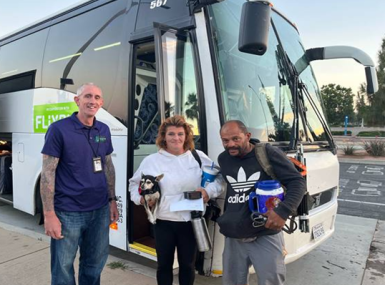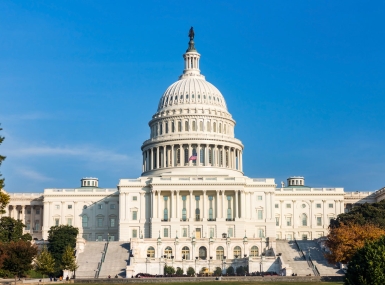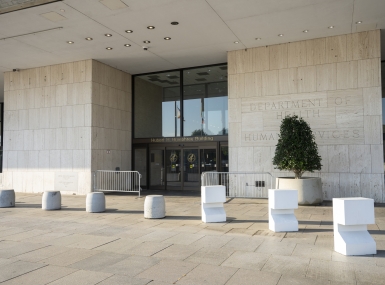Support the Social Services Block Grant (SSBG)

Author

Julia Cortina
Upcoming Events
Related News
ACTION NEEDED
Urge your Members of Congress to increase the funding cap for the Services Block Grant (SSBG).
BACKGROUND
SSBG provides funding to states to support a wide range of social services for vulnerable children, adults and families. Administered by the U.S. Department of Health and Human Services (HHS) Administration for Children and Families (ACF), the program is a capped entitlement to states with no matching requirement, meaning Congress sets funding levels for the program each year during the appropriations process. SSBG had its highest cap at roughly $2.8 billion, but since 2001, Congress has authorized SSBG at $1.7 billion yearly. Additionally, since FY 2014, SSBG has been subject to sequestration—a spending reduction process by which budgetary resources are canceled to enforce budget policy goals— receiving a cut of roughly 7 percent each fiscal year.
SSBG funds support 29 different types of services across eight High Level Service Areas that reduce dependency and promote self-sufficiency; protect children and adults from neglect, abuse and exploitation; and help individuals who are unable to take care of themselves to stay in their homes or to find the best institutional arrangements. In FY 2022, the last year for which data is available, 20 million individuals (46 percent of whom were children) received services supported in whole or in part by SSBG. This is a 33 percent reduction from FY 2014, during which 30
million individuals received support through the program. The highest share of SSBG spending goes toward child welfare and child protective services, general support services, and adult protective services which prevent and remedy abuse, neglect and exploitation of the elderly and disabled adults.
Nine states pass SSBG funds directly to counties: Colorado, Minnesota, New York, North Carolina, North Dakota, Ohio, Pennsylvania, Virginia and Wisconsin, though counties in other states can access SSBG funds as well. These nine states represent 33 percent of total recipients of SSBG services and $300 million (20 percent) of FY 2022 SSBG expenditures.
States may also transfer up to 10 percent of their Temporary Assistance for Needy Families (TANF) block grants to the SSBG for programs or services to children or their families whose income is less than 200 percent of the federal income poverty. In FY 2022, states transferred a total of $1.16 billion from TANF for SSBG expenditures.
SSBG funding for adult protective services is especially useful for counties. Roughly 11 percent of individuals over the age of 60 are thought to suffer from some form of abuse, including financial. Counties administer adult protective services in 15 states but lack adequate federal support for these activities as the Elder Justice Act has received less than 10 percent of authorized funding levels since its 2010 enactment under the Affordable Care Act. SSBG funding is crucial for filling that gap to support elder justice programs and activities, and in FY 2022, 9 percent ($239 million) of total SSBG expenditures went toward services for vulnerable and elderly adults. Meanwhile, as the rate of children in foster care due to parental substance abuse continues to grow, SSBG funds are especially valuable for supplementing other federal child welfare dollars. In 11 states, counties are partially or fully responsible for operating the child welfare system to provide child protective services and foster care to neglected and abused children. In FY 2022, the highest share— 34 percent—of SSBG expenditures went toward child welfare services, totaling over $910 million.
KEY TALKING POINTS
- The Social Services Block Grant (SSBG) provides funds to states for activities that serve vulnerable populations, including adults and children at risk of abuse and neglect. Nine states – Colorado, Minnesota, New York, North Carolina, North Dakota, Ohio, Pennsylvania, Virginia and Wisconsin – pass these funds directly to counties.
- SSBG is the main source of federal funds for adult protective services, which are often a county responsibility. SSBG funding is critical to these efforts due to a historic lack of funding for other federal elder abuse prevention programs.
- In 11 states, counties are fully or partially responsible for fulfilling the federal mandate to provide child protective services and foster care to neglected and abused children. SSBG funds can support foster care placements for children who are otherwise ineligible for the federal foster care program.
- SSBG has received automatic cuts annually since FY 2014, corresponding with a 33 percent decline in individuals benefitting from the program as of FY 2022.
- Because SSBG does not require a state match, it is an especially valuable resource for state and county governments.
- Years of sequestration cuts have eroded SSBG funds. Counties urge Congress to increase the funding cap for SSBG to adequately resource our shared partnership in serving vulnerable populations.





